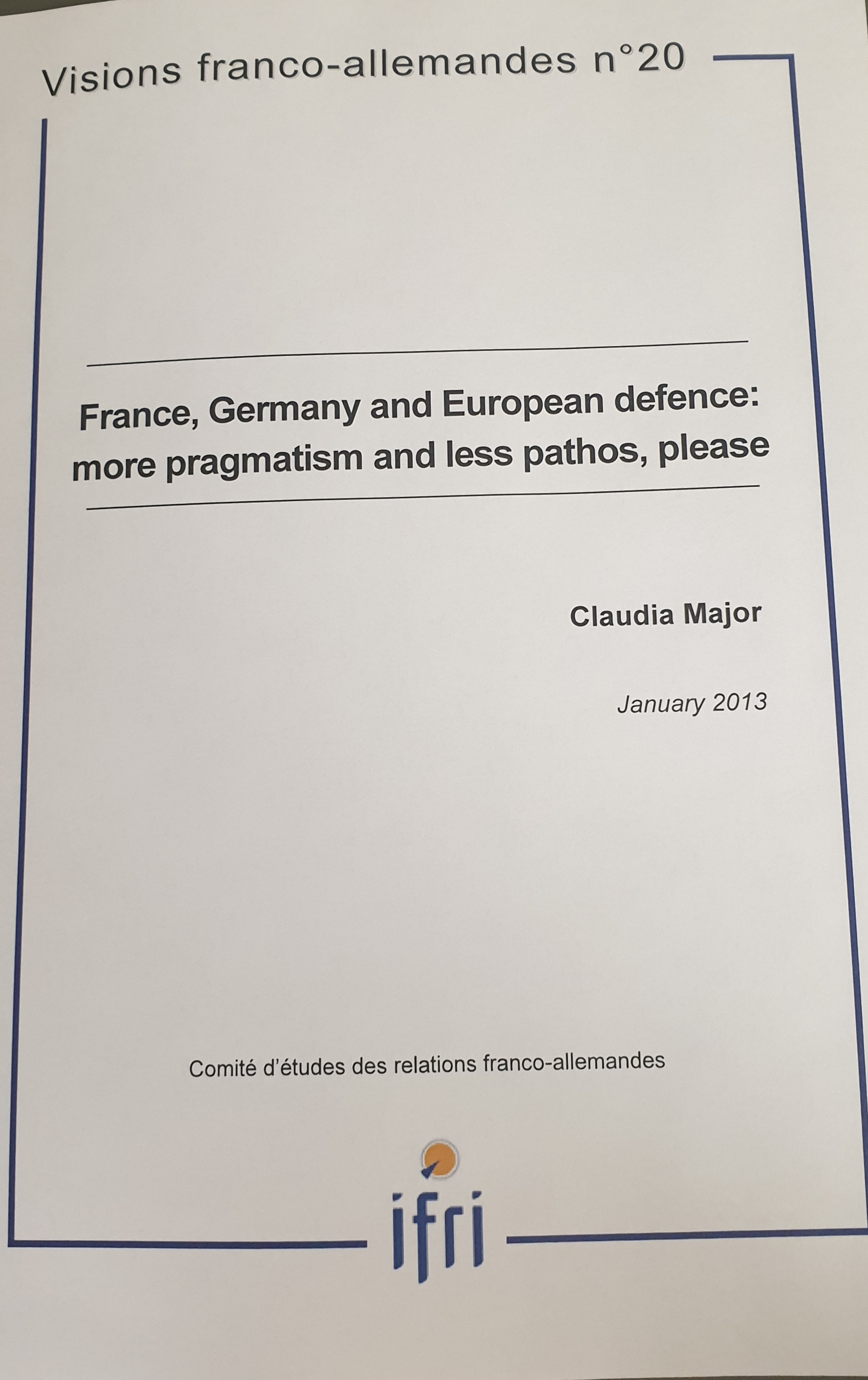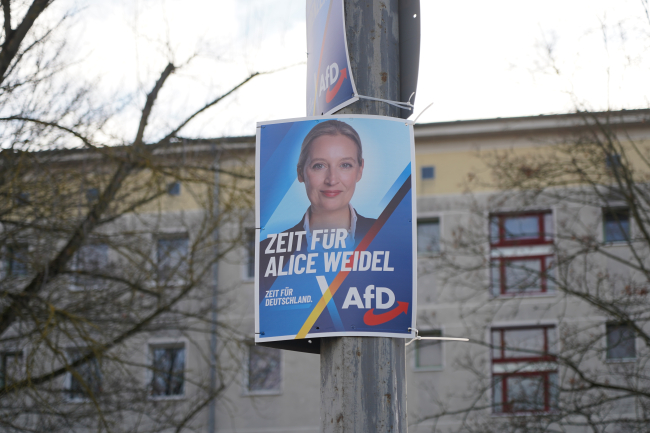France, Germany and European defence: more pragmatism and less pathos, please

At the time of the 50th anniversary celebrations of the Elysée treaty in January 2013, the Franco-German defence cooperation is not at its best.
Even though the bilateral cooperation is intense and has permitted various projects, it does not include all areas and still lacks efficiency. Misunderstandings persist and the network created so far between the two countries has not yet proved sufficient to overcome the differences. The disparities over strategic culture, ambitions on the international scene or the defence industry reveal different priorities of the two countries and, consequently, the agreements are often merely rhetoric. In addition to this, in the current context of economic crisis the two governments’ attention is focused elsewhere.
However, in the light of the international developments an improved cooperation seems inevitable. The shift in North Americas’ zone of interest towards Asia, and significant cuts in defence budgets in virtually of all European member states result in a considerable weakening of the Continents military capacities. Therefore, the bilateral cooperation is a necessity that has to be revived and improved. The author offers several propositions regarding the political, military and industrial sphere; for example, the creation of an investment pool, of a Franco-German Airwing, of a market place for surplus of military equipment and of regional capacity targets. The cooperation has to be consolidated within the European project in order to enable feasible projects that are mutually desired. This would allow Paris and Berlin but also Europe to maintain credible security and defence capacities.
Claudia Major is deputy head of the Research Division “International security policy” at the German Institute for International and Security Affairs (Stiftung Wissenschaft und Politik).
This publication is available in french: La France, l'Allemagne et la défense européenne : pour plus de pragmatisme et moins de pathos (pdf)

Available in:
Regions and themes
ISBN / ISSN
Share
Download the full analysis
This page contains only a summary of our work. If you would like to have access to all the information from our research on the subject, you can download the full version in PDF format.
France, Germany and European defence: more pragmatism and less pathos, please
Related centers and programs
Discover our other research centers and programsFind out more
Discover all our analysesFriedrich Merz and the Zeitenwende 2.0. A “New Era” for Transatlantic Relations?
On February 23, 2025, almost 60 million voters were called upon to elect a new Bundestag. These elections will also give rise to a new government in Europe's largest economy.
After the Elections: Germany in Search of Shaken Stability?
With a voter turnout of 82.5%, Germany recorded its highest participation since 1987—an increase of 6.1 percentage points compared to 2021. As in the previous election, the high turnout particularly benefited the Alternative for Germany (AfD), which was able to mobilize many former non-voters. Many voters sought to punish the outgoing government with their ballots, as its approval rating had dropped to just 14% before the coalition broke apart in November 2024. Germany is now very likely heading toward a grand coalition between the CDU/CSU and the SPD, with exploratory talks having begun on February 28.
The German Greens as an Alliance Party: The End of an Illusion?
At the Wiesbaden Congress in November 2024, Robert Habeck, currently Minister for the Economy and Climate, was nominated as the Green Party’s candidate for the Chancellorship in the early parliamentary elections on February 23, 2025. The party, founded 45 years ago, is now firmly established in the German political landscape. Wishing to turn the page on an unloved ‘‘traffic light’’ coalition, the party is banking on a personal campaign and an optimistic discourse based on the energy transition and social justice.
The rise of the AfD and the choice of radicalism
Founded in 2013, the Alternative für Deutschland (AfD) has become increasingly radical as crises have unfolded. Since 2015-2016 and the massive influx of immigrants into Germany, it has positioned itself as a virulently anti-migrant party and continues to consolidate its foothold in the German political system, particularly in parliaments. While its roots are very strong in the eastern regions, where its main strongholds are located, it is also attracting more and more voters in the west, against an overall backdrop of normalization of the far right and a national context marked by strong economic and political destabilization.










